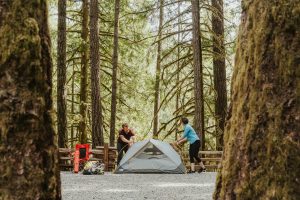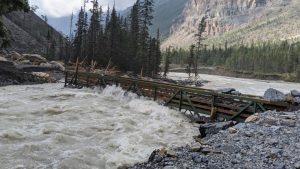Atmospheric river and fire impacts continue to effect BC Parks in 2024
Categories:
Over the past few years, BC Parks has seen an increase in extreme weather events that have significantly impacted several parks. The atmospheric river in fall 2021 left long-lasting impacts in parks that we are still working to repair. Coquihalla Canyon Park, home to the Othello Tunnels, is one of those parks and work continues to fully open the park.
The Berg Lake Trail was impacted by a massive flood in summer 2021 and through a multi-year, multi-phased approach, we are working towards having the entire trail reopened this summer. The area has been impacted by weather throughout the rebuilding process, showing how volatile this area can be.
Last year was no different. Wildfires across the province impacted many parks, especially in the Kootenays. In October, another atmospheric river caused more damage and park closures.
Read on to find out more about these impacts, and the work BC Parks is doing to help mitigate them as extreme weather events continue to increase across the province.
Golden Ears Park was significantly impacted by the atmospheric river on October 19, 2024. Golden Ears Parkway and a number of trails remain closed.
The atmospheric river on October 19, 2024 caused major damage to trails and the main road in Golden Ears Park. The Golden Ears Parkway remains closed due to extensive damage, and staff have noted a number of landslides on trails including the West Canyon Trail where a landslide has destroyed a portion of the trail. A large sinkhole, as seen in the first image below, has also damaged a portion of the Alouette Valley Trail.
Engineers have completed assessments of the Golden Ears Parkway and contractors have completed emergency culvert clearing. The next steps are to repair the road and then trails. We expect the road to reopen in time for people to camp at Golden Ears this spring.
Trails in the nearby Pinecone Burke Park were also damaged by the same storm.
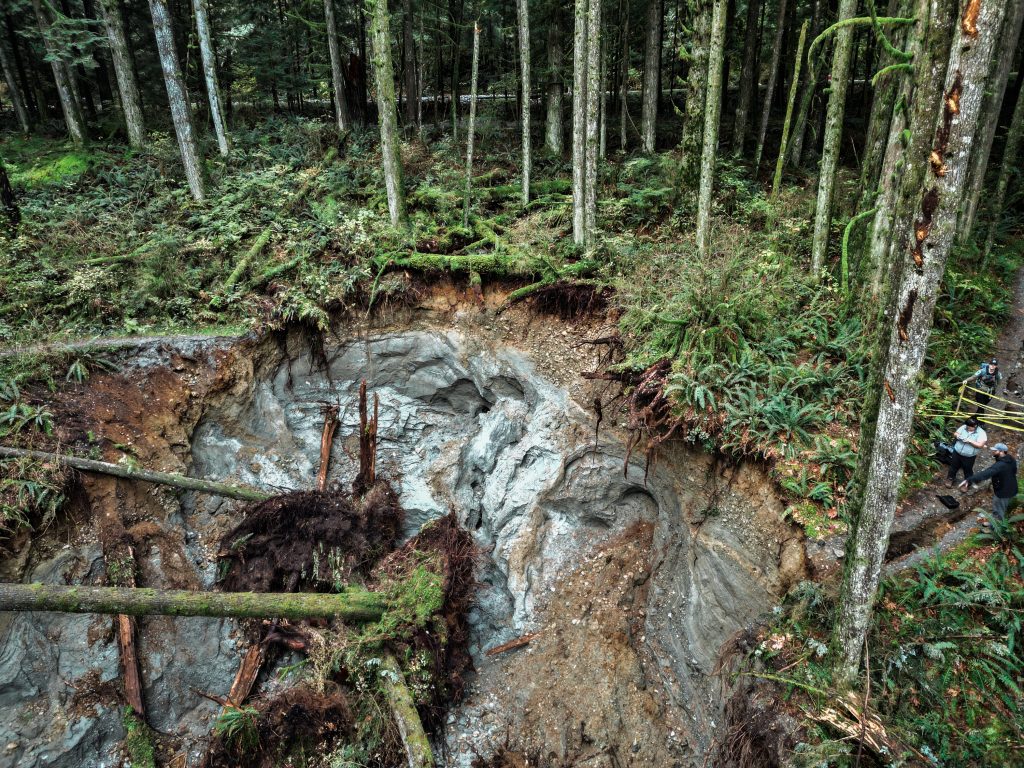
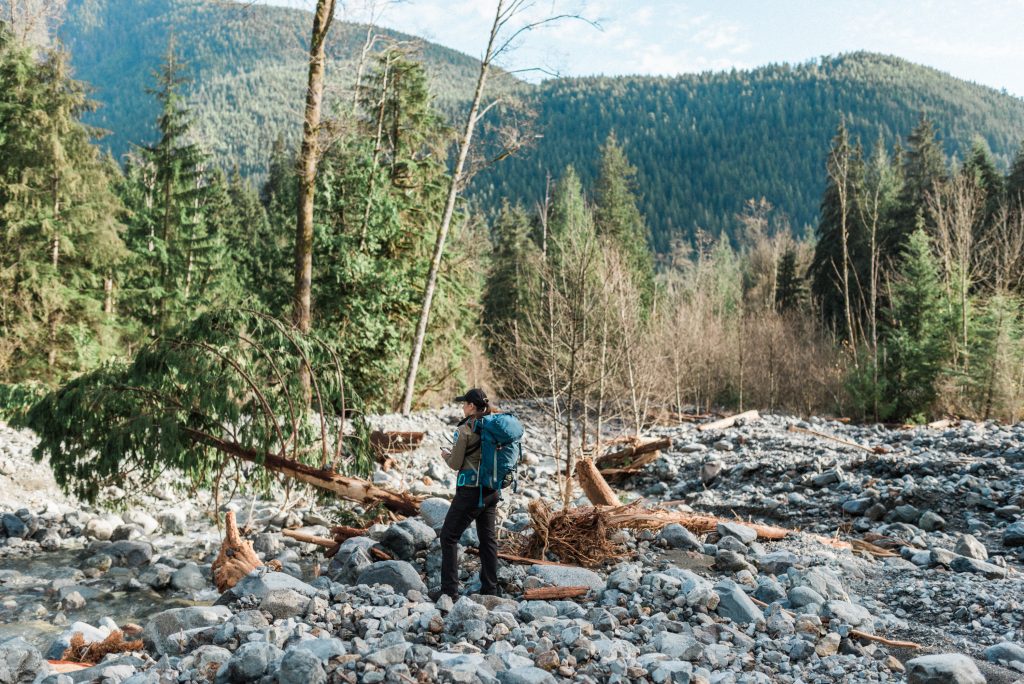
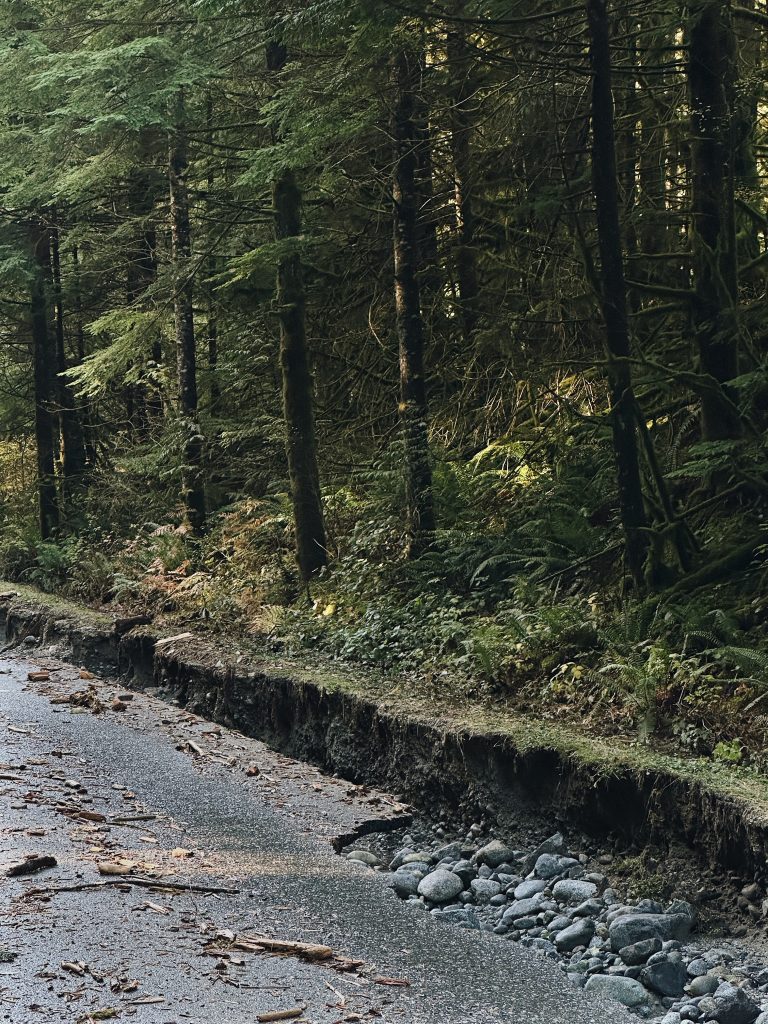
Parts of Valhalla Park remain closed due to wildfire impacts.
Wildfires affected several parks in summer 2024, with many of these parks in the Kootenays. Valhalla Park in particular was hit by wildfire events which led to a complete park closure in July. Some backcountry areas have been reopened, but many areas including campsites and trails along the Slocan lakeshore remain closed to ensure public and worker safety.
In October, BC Parks staff assessed damaged facilities and will return in spring to assess any further damage that may occur over the winter due to storms, snow load and freshet.
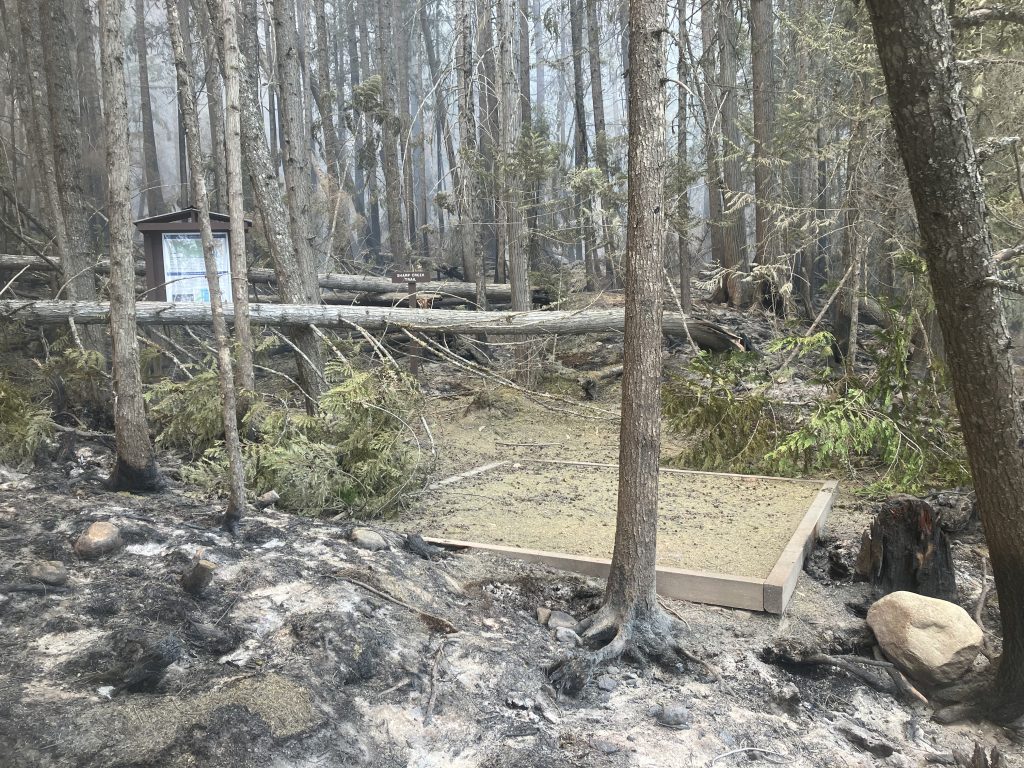
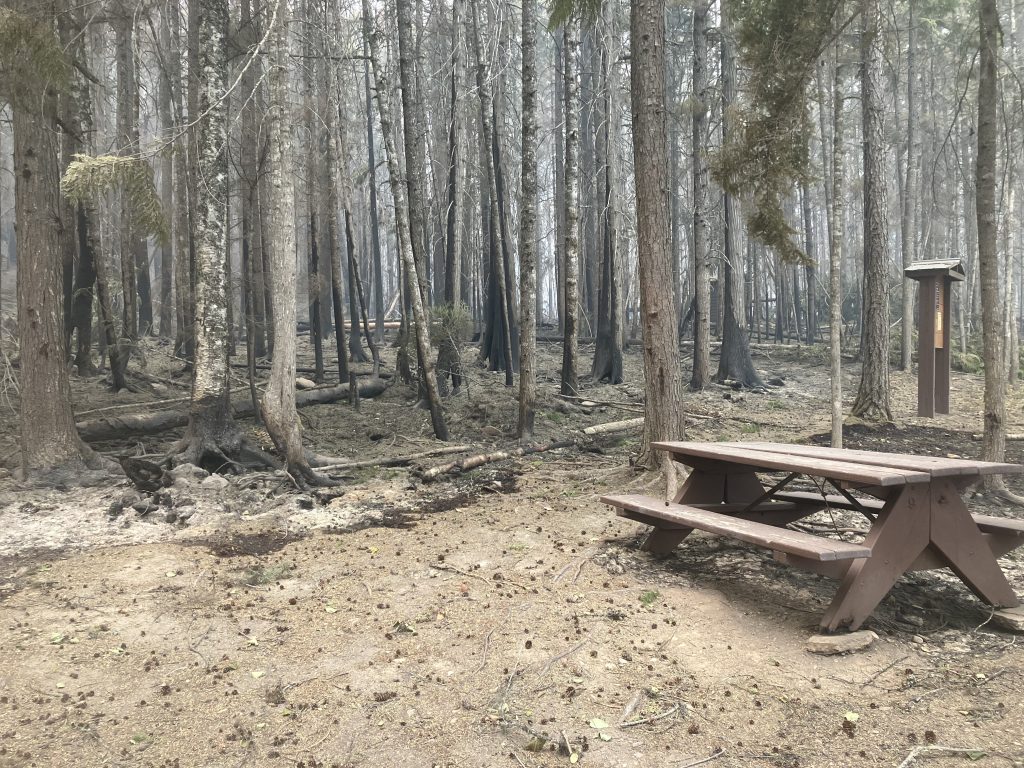
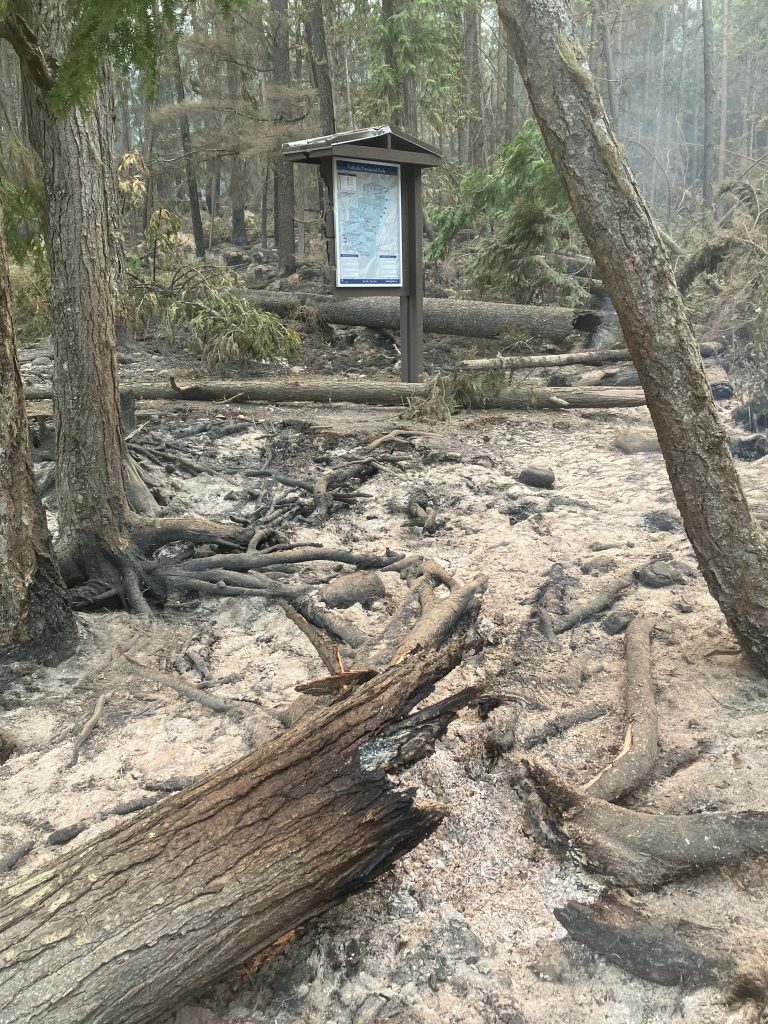
3 photos above showcasing fire impacts to campground in Valhalla Park. (August 2024)
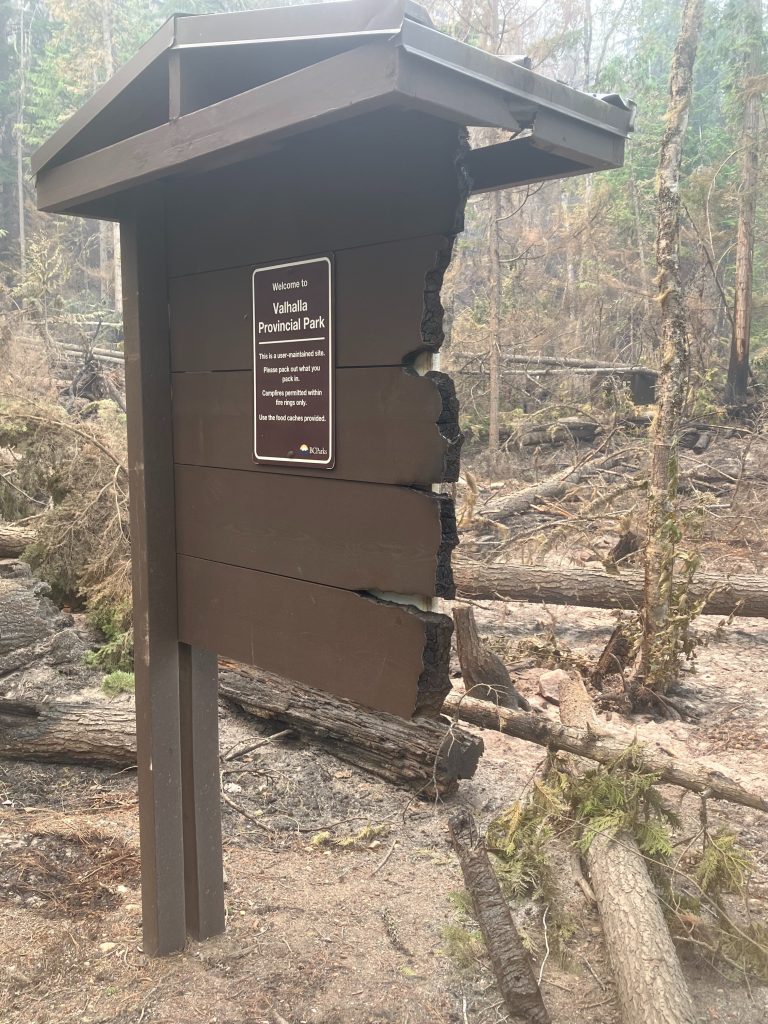
Similarly, Top of the World Park remains fully closed due to wildfire hazards on access trails into the park. Parks staff plan on assessing danger trees in the burned and impacted areas prior to any re-opening plans.
What we’re doing to help plan for and mitigate climate change impacts
BC Parks are typically located in extreme environments like deep river valleys or dense forests. As extreme weather events become more frequent, and at times are magnified in these extreme environments, the impacts to parks’ landscapes and infrastructure continue to increase.
When recovering damaged infrastructure, we’re keeping regional climate in mind and aiming to build resiliency into our planning and design practices to be better prepared for the changing climate. For example, when recovering trails damaged by weather, we spend time assessing the landscape to see if there’s a more suitable location for the trail that requires less river crossings, shorter distances in floodplains, or is built on higher ground and is therefore less vulnerable to flood damage.
Even with careful planning, there are unknowns with future weather events, and we will continue to see impacts to parks that haven’t experienced extreme weather yet, as well as parks that seem to be continuously impacted like the Berg Lake Trail in Mount Robson Park.
We’ll continue to work across teams, and with important partners, to plan for and mitigate the impacts we’ll undoubtedly continue to see.
Where can you stay up to date?
The best place to find the most up-to-date information – including closures and expectations for visitors – is on the individual park webpages.
Thank you for following along as we navigate our new normal of park management in a changing climate. We appreciate your patience and understanding as we work to rebuild and reopen parts of parks with public safety top of mind.


